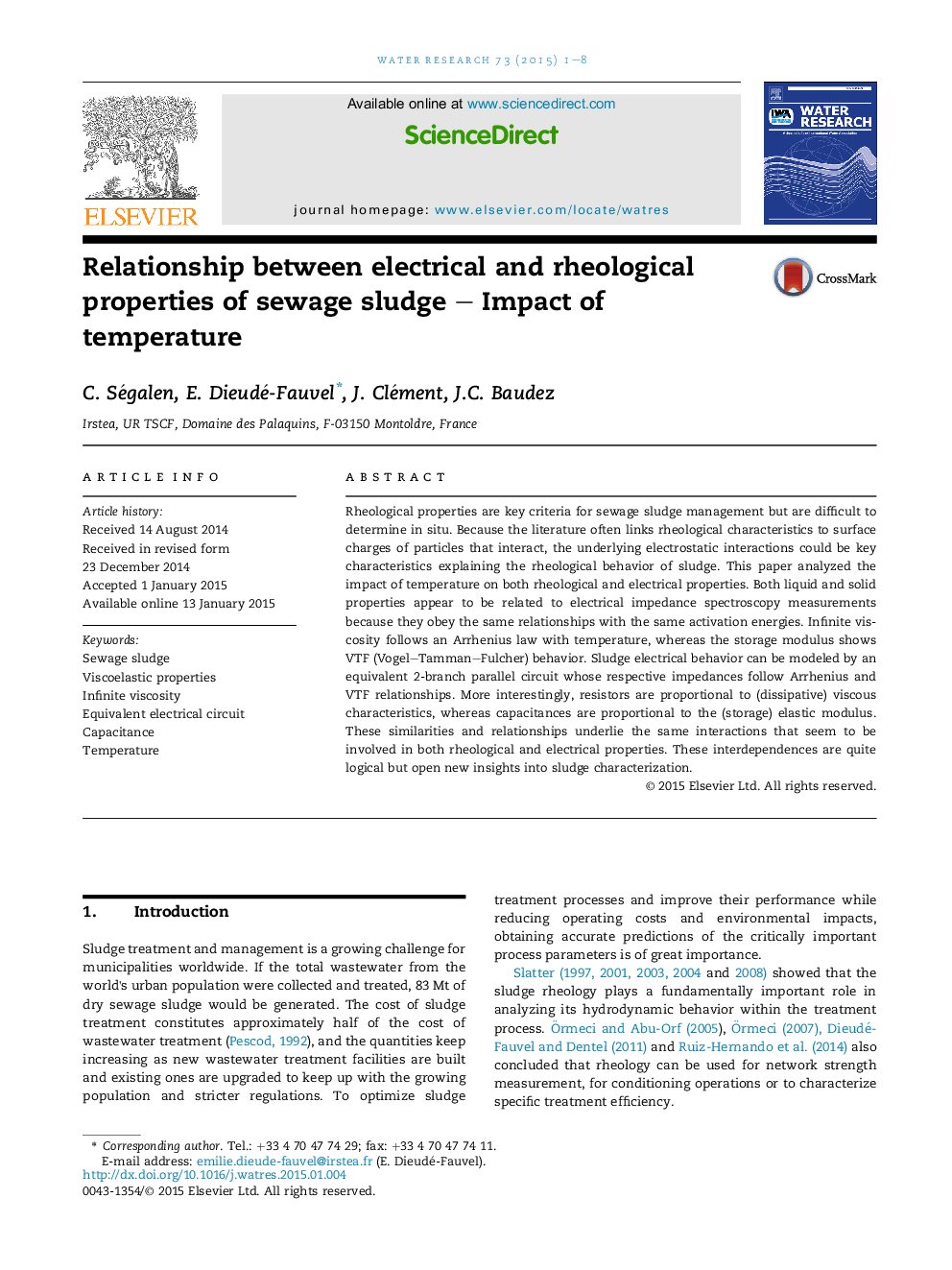| Article ID | Journal | Published Year | Pages | File Type |
|---|---|---|---|---|
| 4481224 | Water Research | 2015 | 8 Pages |
•Sludge electrical signature was modeled by an equivalent circuit.•Strong relationships were found between electrical and rheological properties.•Temperature impact on sludge rheological and electrical properties was studied.•Liquid-like and solid-like properties respectively follow Arrhenius and VTF laws.
Rheological properties are key criteria for sewage sludge management but are difficult to determine in situ. Because the literature often links rheological characteristics to surface charges of particles that interact, the underlying electrostatic interactions could be key characteristics explaining the rheological behavior of sludge. This paper analyzed the impact of temperature on both rheological and electrical properties. Both liquid and solid properties appear to be related to electrical impedance spectroscopy measurements because they obey the same relationships with the same activation energies. Infinite viscosity follows an Arrhenius law with temperature, whereas the storage modulus shows VTF (Vogel–Tamman–Fulcher) behavior. Sludge electrical behavior can be modeled by an equivalent 2-branch parallel circuit whose respective impedances follow Arrhenius and VTF relationships. More interestingly, resistors are proportional to (dissipative) viscous characteristics, whereas capacitances are proportional to the (storage) elastic modulus. These similarities and relationships underlie the same interactions that seem to be involved in both rheological and electrical properties. These interdependences are quite logical but open new insights into sludge characterization.
